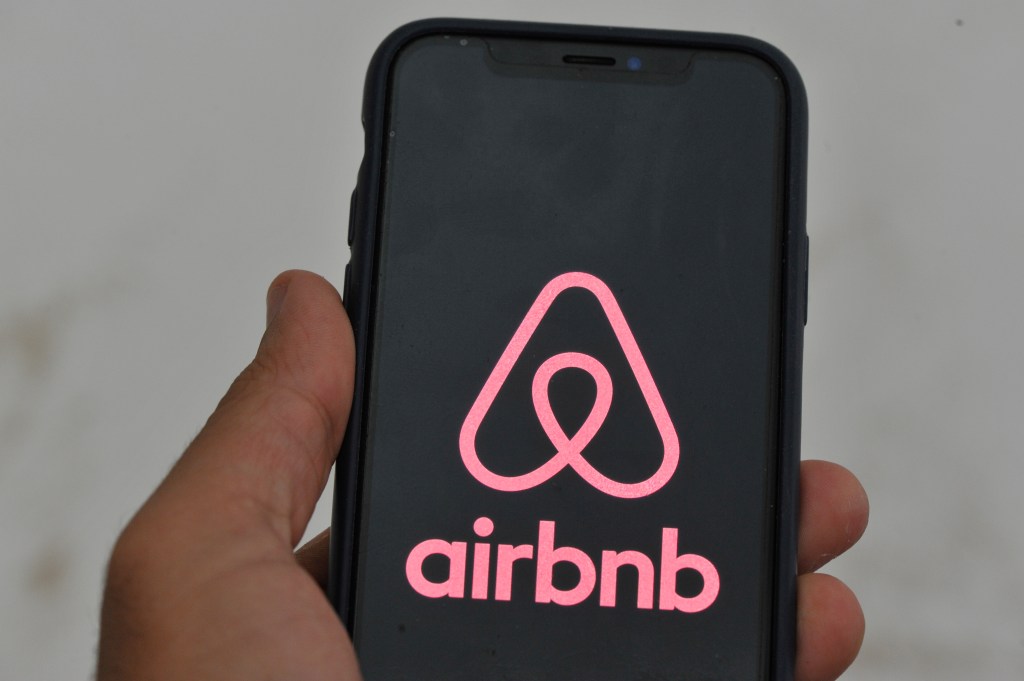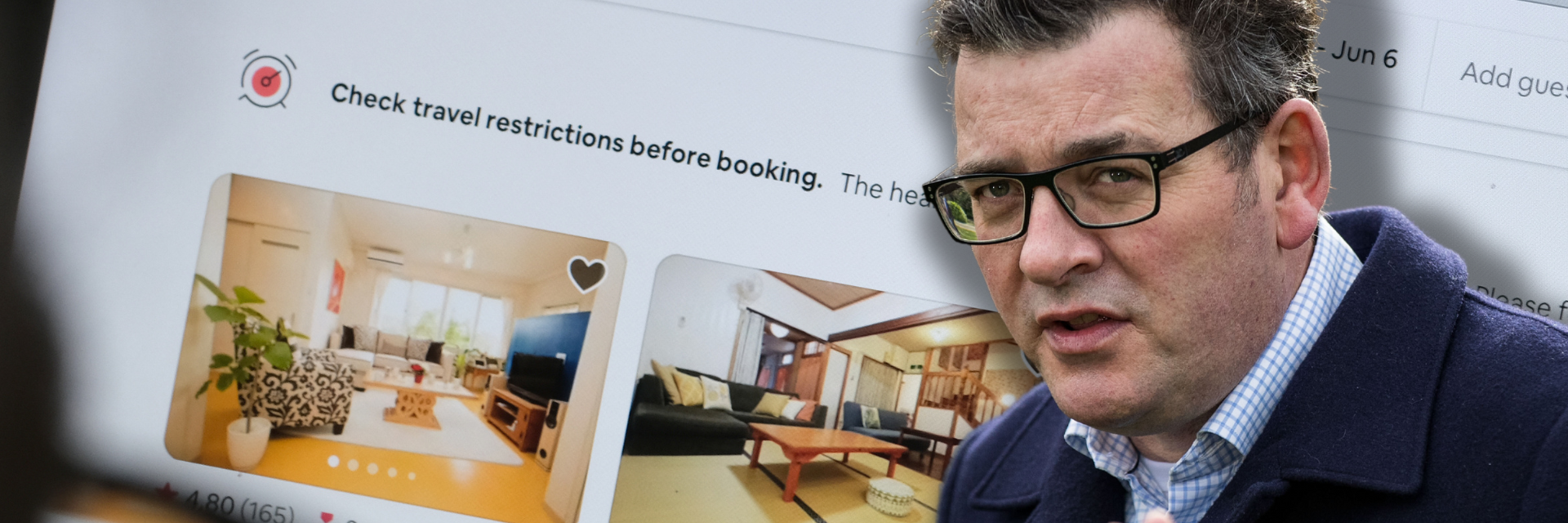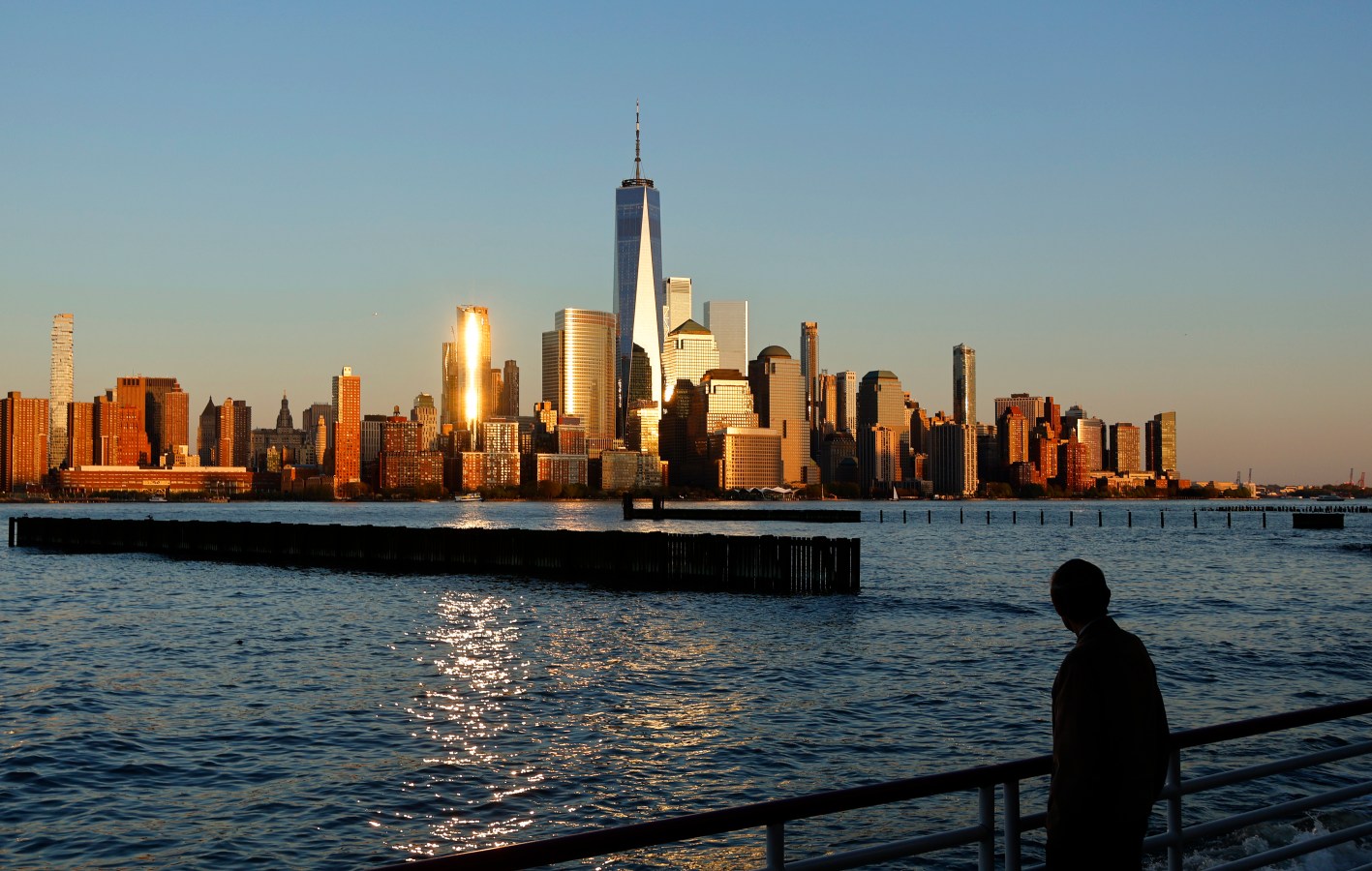Victoria has just passed a 7.5% levy on short-term rental accommodation. After New York’s Local Law 18 came into effect in early September, is Airbnb on a collision course?

Short-term rental platform Airbnb came out of the famous startup incubator, the Y Combinator, in 2009 with about 2,500 listings and 10,000 registered users.
Today, Search Logistics estimates the platform boasts over 4 million hosts and more than 6 million listings in more than 100,000 cities.
Airbnb listed on the tech-heavy Nasdaq in December 2020 after a rocky year that saw platform rentals fall over 70% due to travel restrictions. The IPO – the largest of 2020 – valued the rental platform at more than US$100 billion. But in the last 18 months, the business has been experiencing a steady decline. Its share price is now at US$143 (at the time of writing), down from a peak of about US$207 in November 2021. Though some of it could be attributed to an overall downturn in the tech sector, much of the decline is due to a global regulatory crackdown on short-term rentals.
New York’s Local Law 18
In New York, there are more than 39,400 listings, at an average price of US$219 per night. Hosts can expect to bring in an average income of US$17,183, according to Airbnb data site, Inside Airbnb.
But a new city law for short-term rentals, called Local Law 18, is threatening to derail Airbnb’s success. The law, also called the Short-term Rental Registration Law, requires hosts on Airbnb and other platforms to register with the Mayor’s Office of Special Enforcement. What’s more, no more than two guests can stay in a space for less than 30 days and guests must have full unrestricted access to the dwelling – that’s a kicker for Airbnb hosts, who could so far choose to rent out private rooms in their abodes. And, only residents who live in the place they’re renting qualify under the law.
Airbnb and three local hosts in New York filed separate lawsuits arguing the law would represent a ‘de facto ban’ on short-term rentals, but ultimately the law came into force on September 5.
Related
Victoria’s Airbnb levy
Over in Victoria, Australia, the state government has signed off on a new levy of 7.5% on short-term accommodation. For Melbourne, which has about 23,185 listings at a price of $231 per night, that represents an increase of $17, according to Inside Airbnb.
The idea is that the levy would pressure Victoria’s 30,000-40,000 holiday homes onto the rental market to ease the state’s rental crisis.
“There’s between 30,000 and 40,000 homes that are being Airbnb-ed or other platforms, so they’re short stay, which means they’re not available for someone to lease to rent on a longer term basis. That is a real thing,” Premier Dan Andrews told ABC Radio.
Airbnb ANZ’s head of public policy, Michael Crosby, said that while the platform supports policies that would help boost housing construction around Australia, a 7.5% levy that applies only to short-term rentals is “too high”, and would give hotels “a free kick”.
“A rate that high could have a negative impact on the appeal of the state as a tourism destination, also penalising everyday Victorians at the wrong time,” Crosby said.
“We believe a levy somewhere between 3-5 percent which is in line with international policies, would be appropriate.”
In North America, Massachusetts has imposed a 5.7% levy, while in Canada, Quebec has imposed a 3.5% levy. Scotland’s introduced legislation to allow local councils to set a levy, while Berlin’s levy is 5%. In New Zealand, Queenstown and the Lake District Council have proposed a levy of 5%.
“We’ve worked with many cities around the world to make this visitor levy work, remitting over $10 billion AUD in taxes globally to support community infrastructure and housing projects. It’s worked across the US, Europe and Canada and allows communities to share in the economic activity created by tourism more directly,” Crosby says.
Airbnb’s real impact on the rental market
According to Professor Nicole Gurran from the School of Architecture, Design and Planning at the University of Sydney, restrictions on short-term rentals are a “no-brainer”. In an opinion piece, Gurran wrote: “The international research on the impact of these rentals is clear: when landlords “host” tourists rather than residents, housing supply is depleted, rents rise and neighbourhoods change.”
The share of rental properties listed for under $400 a week in Australian capital cities more than halved in the 12 months to March 2023 to 15%. Less than 5% of Sydney homers were listed at under $400 a week, while the proportion of those rentals in Melbourne fell to 20% (from 43.5%).
Smaller measures, like limiting how long a host can rent out their unit (in Sydney, a maximum of 180 days per year) have been taken, but Gurran argued that on the whole, Australia has stayed “light touch” on short-term rentals, given the extent of the crisis.
But Crosby argues Airbnb does more good than harm – at least for the economy.
“The contribution to both GDP and jobs driven by travel on Airbnb in Australia has created powerful economic ripple effects that help support businesses such as retailers, restaurants, bars and cafes — which are often the foundation for life in local communities — and has generated jobs that went far beyond where travellers stayed and with whom,” he said, referencing a report by Oxford Economics that found Airbnb contributed $3.7 billion to Victoria’s Gross Domestic Product last year.
What does the future hold for Airbnb?
Despite the regulatory challenges, Airbnb’s share price has remained relatively flat.
In its Q2 earnings report, Airbnb revealed its revenue grew 18% year-on-year in the quarter, and net income reached US$650 million (compared to US$379 million in the same quarter last year). That said, it booked 115.1 million nights and experiences during the quarter – which is a deceleration relative to Q1, the company said in a letter to shareholders.
In its forward-looking statement, the company noted, “changes to the laws and regulations that may limit the Company’s Hosts’ ability and willingness to provide their listings, and/or result in significant fines, liabilities, and penalties to the Company…” posed a risk to its future, though just how much remains uncertain.
The company’s upcoming earnings in October will provide a further insight into how the regulations in New York have impacted the company’s bottom line.
Look back on the week that was with hand-picked articles from Australia and around the world. Sign up to the Forbes Australia newsletter here or become a member here.



